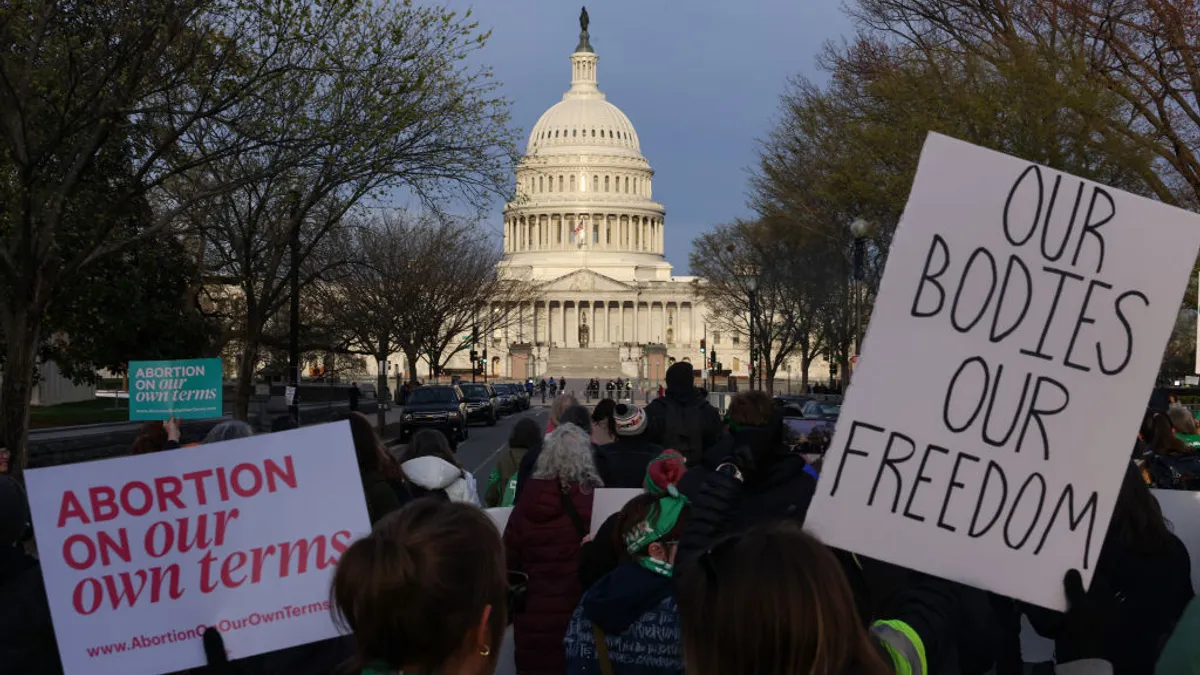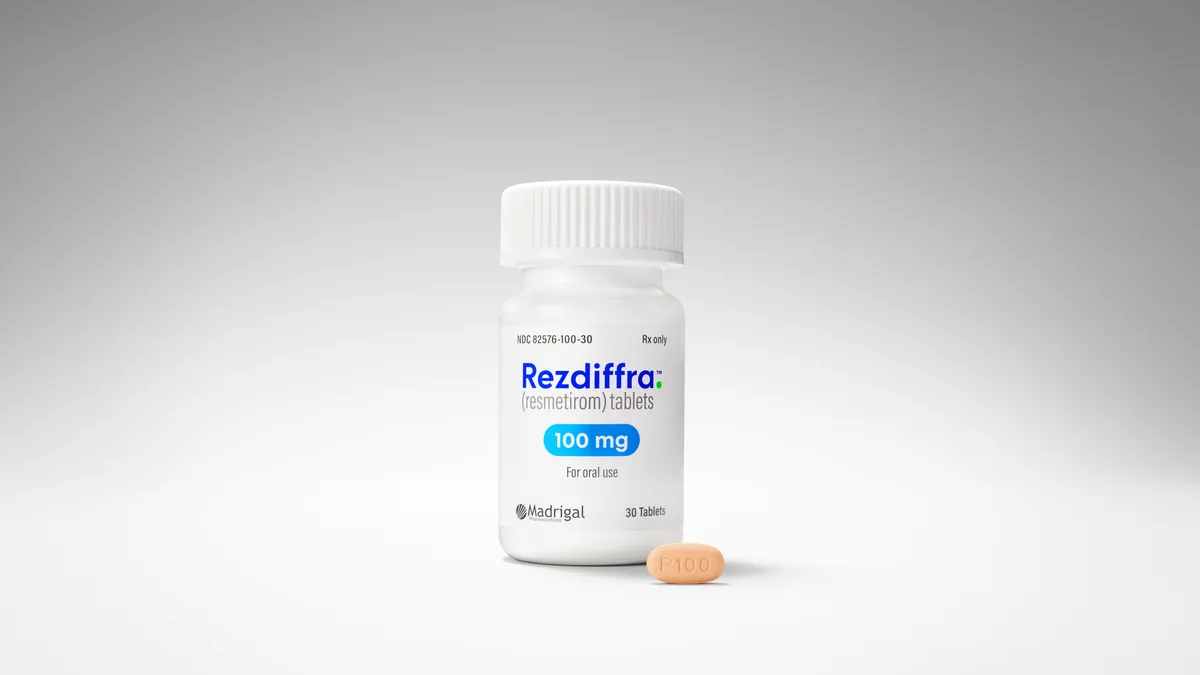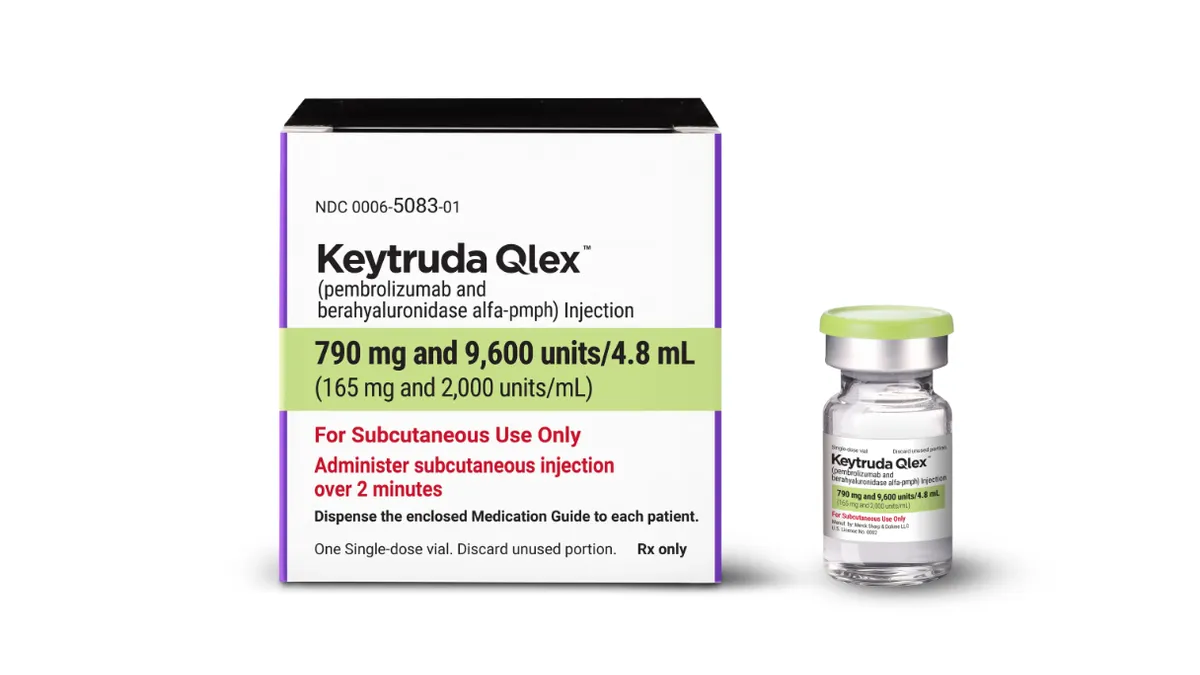Meg Alexander is chief strategy officer at Ovid Therapeutics. She helped organize the biopharmaceutical industry’s coalition to preserve the FDA’s regulatory authority and women’s access to mifepristone. Views are the author’s own.
In Danco Laboratories v. Alliance for Hippocratic Medicine heard last month by the U.S. Supreme Court, the justices were asked to issue a ruling unprecedented in our nation’s history: to overrule the FDA’s expert scientific judgment on a medicine’s safety and efficacy following the completion of the world’s most rigorous, peer-reviewed approval process.

The fact that the medication in question, mifepristone, is used by women for first-trimester abortions has received an avalanche of media attention; the fact that mifepristone is also used to treat Cushing’s disease, gynecological conditions and cancer, far less. While the specific drug and indication are unquestionably important to women’s health, there are even broader issues at stake for our industry.
On one side of the argument, anti-abortion activists claim that when the FDA allowed changes to prescribing practices for mifepristone in 2016 and 2021, it “increased the substantial risk of harm” to patients and doctors who treat women suffering from adverse effects.
Danco, the drugmaker at the center of the case, has maintained that prescribing rules for the abortion pill have not caused harm to the challengers.
For the industry, the bigger question is whether courts should be allowed to second guess the FDA’s science-based approach to drug reviews and approvals.
During oral arguments, Justice Samuel Alito — author of the Dobbs decision that struck down Roe v. Wade — asked the plaintiff’s attorney, “Do you think the FDA is infallible?”
The court’s newest member, Justice Ketanji Brown Jackson, returned, “I’m wondering about the flip side: Do you think courts have specialized scientific knowledge with respect to pharmaceuticals…? And do you have concerns about judges parsing scientific and medical studies?”
The extraordinary exchange that ensued illustrates the impact our industry can have when we speak with a common voice on existential threats to the biopharma ecosystem.
In the Danco case, stakeholders filed amicus briefs, including 600 state legislators, 257 members of Congress, obstetricians and gynecologists, drug law scholars, former FDA commissioners, patient advocacy organizations, nurse practitioners, local governments and religious groups. However, during oral arguments, Justice Jackson didn’t ask about any of those friend-of-the court filings, only the industry’s brief.
It was a powerful moment that dramatized the impact of our collective voice. From Big Pharma to small biotech, from life sciences investors to longtime CEOs, from the BIO trade group to the Biotech Sisterhood, leaders across our field rallied together to make a compelling case that illuminated the stakes beyond the abortion debate.
In an industry amicus brief, our coalition stressed the chilling impact that overturning the FDA would have on regulatory predictability. Without certainty in the primacy of the FDA’s decision-making, the substantial capital on which innovation depends may be withheld.
During oral arguments, Justice Jackson asked the petitioner on behalf of Danco to summarize the arguments in our brief. What would it mean to our business model if the FDA’s careful adjudication of mifepristone’s safety was substituted by the judgment of the judiciary?
During her reply, the attorney for Danco noted that the district judge who originally sought to impose a nationwide ban on mifepristone relied on a “study” that was, in fact, an analysis of anonymous blog posts as well as a set of studies subsequently retracted from the record for misleading presentations of data and lack of scientific rigor.
“Those sorts of errors,” the petitioner noted, “can infect judicial analysis precisely because judges are not experts in statistics and the methodology used for scientific studies for clinical trials. That is why the FDA has many hundreds of pages of analysis in the record of what the scientific data showed. Courts are just not in a position to parse through and second guess that.”
The counselor’s statement seems obvious, yet challenges to the FDA’s authority are mounting in both federal and state courts.
A month before SCOTUS took up the mifepristone case, the Alabama Supreme Court outlawed in vitro fertilization statewide. In his opinion, Alabama’s Chief Justice cited a 25-year-old article from an academic law journal that made outdated, non-scientific claims about IVF’s safety while ignoring the testimony of credentialed medical experts well-versed in the scientific progress of the last quarter century.
Subsequently Alabama passed a bill granting civil and criminal immunity for those who provide or accept IVF services. Yet, if the courts decide to allow populist sentiment, political opinions or spirituality to supersede exhaustive, peer-reviewed science when it comes to determining a medicine’s safety and availability, Pandora’s box may be impossible to close.
While the Supreme Court seems inclined to punt the mifepristone case until after the election on procedural grounds, this is likely the beginning, not the end, of a new wave of jurisprudence questioning and potentially weakening the FDA’s long-settled authority to decide which medicines are safe, effective and legal for Americans to take.
Everyone in our sector should care about the outcome of the mifepristone case because the success of the biopharmaceutical enterprise depends on fidelity to empirical, data-driven science. We must not shift to a new regulatory standard of “safety, efficacy, and political palatability.”
If mifepristone can be restricted and third parties are empowered to use spirituality or politics to muddy the waters of scientific evidence, what comes next?
Can you ban FDA-approved antidepressants because you believe the best approach is to soldier through? Can you ban COVID vaccines because a conspiracy theory involving microchips resonates with you? Can you ban HIV drugs?
Formal opposition to judicial encroachment in drug development doesn’t require anyone in our industry to change their deeply held beliefs. It merely requires appreciation of the existential threat we face if elected judges grant themselves new powers to make scientific and clinical judgments that Congress has explicitly entrusted to experts at the FDA.


















